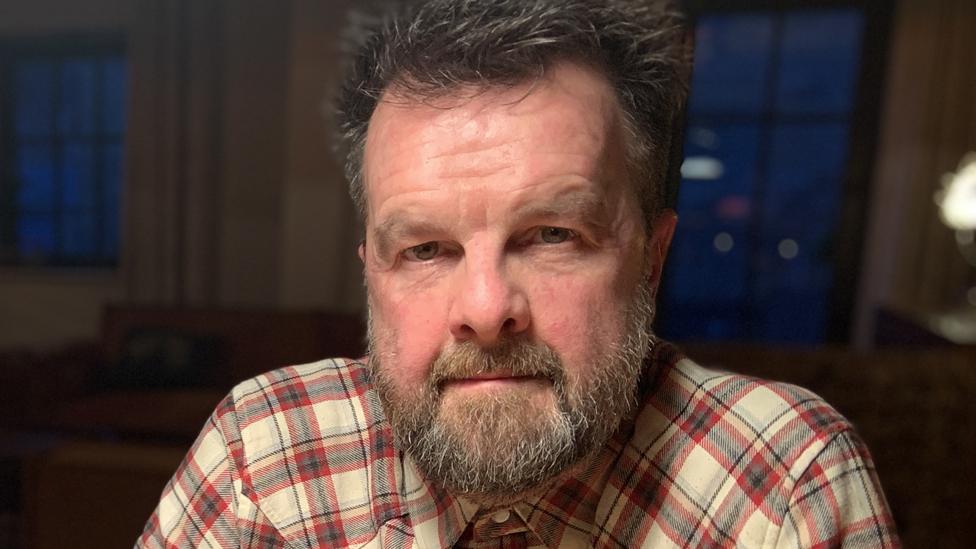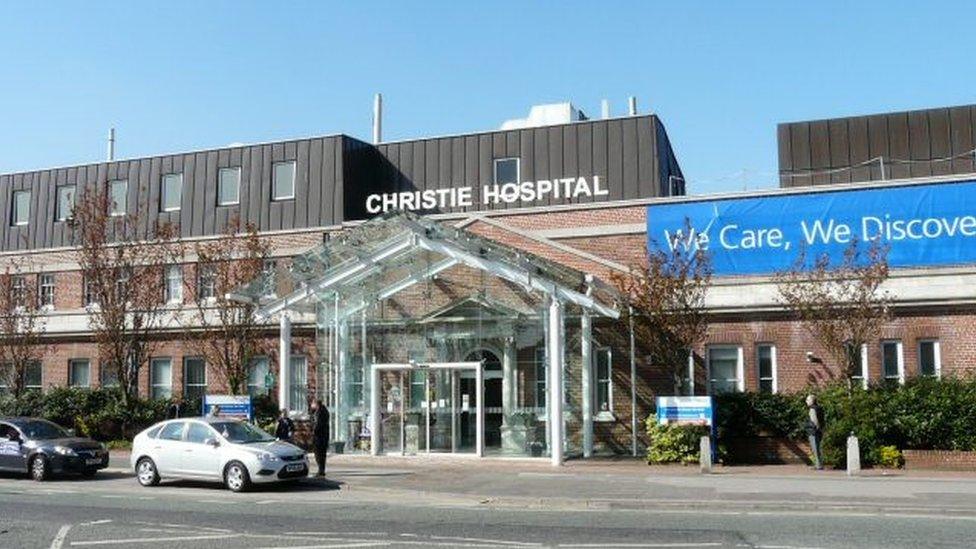Glossop man told NHS will not fund £40k a time eye cancer treatment
- Published

Mr Shore said he may have to raise up to £240,000 for the treatment
A man with a rare eye cancer has been told he has to pay for his treatment, even though the medicines watchdog said it could be used with safeguards.
Glossop's Craig Shore, whose ocular uveal melanoma has mutated to his liver, has been informed the NHS cannot provide chemosaturation.
The 52-year-old said he may need to raise at least £120,000 to pay for the treatment as a private patient.
NHS England said there was "not enough evidence" to demonstrate its benefits.
Mr Shore said he was initially successfully treated for the cancer in 2021, but in October 2023, his consultant told him it had reappeared in his liver.
He said the diagnosis was "like a bolt from the blue".
"I pushed him on the phone to say what was the worst case scenario," he said.
"He told me that if it was untreated, we were looking at somewhere between 11 to 16 months."
'Changed people's lives'
Few treatments are currently available for his cancer, but one which has appeared to show promising results is chemosaturation.
The treatment uses a device to temporarily isolate the liver and then deliver chemotherapy drugs straight into it, removing them 30 minutes later, which allows a stronger dose to be given.
In 2021, it was reviewed by NICE, the government organisation which decides whether the NHS should fund medicines and treatments.
It judged that there was some evidence the procedure worked, but because there were serious risks associated with it, those needed explaining to the patient.
It also stated that medical staff should collect data to help in the future and asked for a further review in April 2024.
That means that in theory, it can be funded.

Mr Shore will start his self-funded treatment at Manchester's The Christie later in February
However, NHS England said it was not the best use of health service resources and will not pay for it.
Due to chemosaturation being a procedure, rather than a drug, NHS England does not have to follow the NICE guidance in the usual way.
Chemosaturation sessions cost £40,000 each and patients need between two and six of them, which means a patient could face a bill of up to £240,000.
Jo Gumbs, the chief executive of ocular melanoma charity OcuMel UK, said the treatment does not always work but she has seen people's lives transformed by it.
"We now know people who have no evidence of this disease in their liver thanks to this treatment," she said.
"It's been absolutely fantastic in how it's changed people's lives."
The charity's website has dozens of appeals on it from members trying to raise money for the procedure.
Ms Gumbs said the charity had seen people "selling their houses, crowdfunding, going to huge extremes of fundraising and it's just another pressure that patients with this cancer really shouldn't be needing".
"It's a huge amount of money," she added.

If you're affected by the issues in this piece, you can find support from BBC Action Line.

Mr Shore and his family have raised tens of thousands of pounds with charity events and crowdfunding and have also cashed in their life insurance so that he can have the treatment.
He will start it later in February at the Christie in Manchester.
The hospital is one of a handful of places able to offer the procedure, but it is not allowed to provide it on the NHS.
He has been told he will probably need two or three sessions, but it could be more.
Mr Shore's wife Michelle said he could "need up to six treatments".
"We'll be selling the house," she said.
"It's ridiculous and unfair.
" You don't sleep, it's stressful."
An NHS representative said a review of chemosaturation found there was "not enough evidence to demonstrate that it would benefit patients or represent the best use of health service resources".
"NICE says that chemosaturation has serious complications and advises caution, and its guidance does not ask for it be made available on the NHS," they said.
"If a clinician feels that the level of evidence for this treatment has changed, they should inform us, so we can conduct further reviews."

Follow BBC East Midlands on Facebook, external, on X, external, or on Instagram, external. Send your story ideas to eastmidsnews@bbc.co.uk, external.